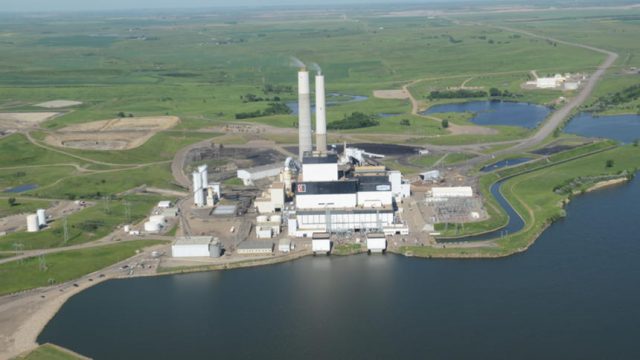Jason Bohrer: The Clean Power Plan No Longer Threatens North Dakota’s Economy

Scott Pruitt, Environmental Protection Agency (EPA) administrator, did a big favor for states like ours that use coal to generate electricity. His recent decision to repeal the Clean Power Plan lifted a massive regulation from our state’s economy, sparing our industries and households the effects from a weakened power grid, higher power prices and the loss of good-paying jobs.
The Clean Power Plan, or CPP, is a prime example of good intentions gone awry. The idea, hatched in the Obama administration, was to reduce emissions that contribute to global warming. But the solution was to force into retirement many of the power plants that supply more than 70 percent of our state’s electricity and without delivering any significant environmental benefits.
[mks_pullquote align=”left” width=”300″ size=”24″ bg_color=”#ffffff” txt_color=”#000000″]Political activists will hammer Administrator Pruitt for rolling back climate change action. But the most surprising fact about the CPP is how trivial its environmental benefit would be: a reduction of 0.018° F.[/mks_pullquote]
The CPP threatened to close down half of the state’s seven’s power plants. This is one early retirement plan that would not work for North Dakota. That’s because less coal-based electricity means less grid resiliency. Together with the struggles facing nuclear power, the result would have made our electricity grid precariously dependent on intermittent energy sources to provide affordable, round-the-clock electricity.
The CPP was based on wishful thinking about the ability of renewable power to fill the gap left by coal plant closings. Despite the growth in wind and solar energy, they still supply only 7 percent of the power Americans use.
The decline of coal-based power plants in North Dakota would lead to further declines in coal production, contributing to as many as 6,000 lost jobs – from the mines and plants to the companies who supply equipment and services. The loss of these high-wage jobs would have been especially damaging in coal-dependent states like ours, and devastating to communities such as Center, Beulah, Hazen, Washburn and Underwood.
Political activists will hammer Administrator Pruitt for rolling back climate change action. But the most surprising fact about the CPP is how trivial its environmental benefit would be: a reduction of 0.018° F. The CPP would have had a much bigger impact on the economy than it ever would have on climate change.
The Department of Energy is trying to forestall further weakening of the nation’s power grid. Energy Secretary Perry has asked federal regulators to assign higher values to coal and nuclear power plants in recognition of their reliability. That should help to reduce further closures of power plants that can quickly and constantly generate power when needed.
In North Dakota’s lignite industry, we view the end of CPP as the beginning of a time when industry and government can work together on meaningful technologies that can assure a pristine environment with a continued emphasis on reliable and affordable coal-based electricity.




